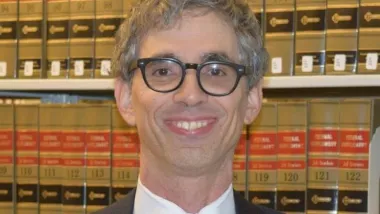Shutting down cities as a response to terrorism makes such violence more rewarding and thus more tempting.
In April, Gov. Duval Patrick decided to shut down Boston in response to a terrorist bombing that killed three people, shutting down public transportation and encouraging people to stay home behind locked doors. This is the dialogue that I wish that occurred between the press and Gov. Patrick.
PRESS: Why did you shut down all economic activity in Boston?
PATRICK: To fight terrorism. There was a dangerous man out there on the loose.
PRESS: You mean the teenage bomber, Mr. Tsarnaev, correct?
PATRICK: Yes.
PRESS: What's done is done. Will you do the same thing the next time there's a bombing?
PATRICK: Well, I hope there won't be, but, um, maybe yes.
PRESS: So let's suppose that there is another terrorist out there who blows up a few more people. If you follow the same policy next time, what results has he accomplished?
PATRICK: Killed a few people and ...um....
PRESS: shuts down the economy too, right?
PATRICK: I admit it, but listen, lives are at stake.
PRESS: Indeed they are. But let's suppose that you had reacted the way President Bush reacted after Sept. 11, telling people to go about their business rather than being intimidated. What would the terrorist have accomplished then?
PATRICK: Killed people.
PRESS: But not shut down the economy, right?
PATRICK: Agreed.
PRESS: So with your policies, the terrorist kills people AND shuts down the economy, at least for a few days. But with the Bush policies, he kills people but DOESN'T shut down the economy. Which is the bigger impact?
PATRICK: I guess, killing people AND shutting down the economy.
PRESS: So let's put ourselves in the shoes of a potential terrorist. Is he more likely to commit the act if he has a smaller impact, or if he has a bigger impact affecting more people?
PATRICK: I guess the latter, because then the benefit of his act (from his point of view) outweighs the harm caused by his death or imprisonment.
PRESS: So we've already established that the bigger the impact from a terrorist act, the more likely it is that a would-be terrorist will decide to go out and blow up people, and that if a terrorist causes you to shut down the city, he has created an economic and social impact that might not exist otherwise. Correct?
PATRICK: Yes.
PRESS: So doesn't it follow that by shutting down the city, you make terrorism more appealing, and you are encouraging future would-be terrorists to start blowing up people?
PATRICK: You got me there.

Planetizen Federal Action Tracker
A weekly monitor of how Trump’s orders and actions are impacting planners and planning in America.

Chicago’s Ghost Rails
Just beneath the surface of the modern city lie the remnants of its expansive early 20th-century streetcar system.

Amtrak Cutting Jobs, Funding to High-Speed Rail
The agency plans to cut 10 percent of its workforce and has confirmed it will not fund new high-speed rail projects.

Ohio Forces Data Centers to Prepay for Power
Utilities are calling on states to hold data center operators responsible for new energy demands to prevent leaving consumers on the hook for their bills.

MARTA CEO Steps Down Amid Citizenship Concerns
MARTA’s board announced Thursday that its chief, who is from Canada, is resigning due to questions about his immigration status.

Silicon Valley ‘Bike Superhighway’ Awarded $14M State Grant
A Caltrans grant brings the 10-mile Central Bikeway project connecting Santa Clara and East San Jose closer to fruition.
Urban Design for Planners 1: Software Tools
This six-course series explores essential urban design concepts using open source software and equips planners with the tools they need to participate fully in the urban design process.
Planning for Universal Design
Learn the tools for implementing Universal Design in planning regulations.
Caltrans
City of Fort Worth
Mpact (founded as Rail~Volution)
City of Camden Redevelopment Agency
City of Astoria
City of Portland
City of Laramie





























